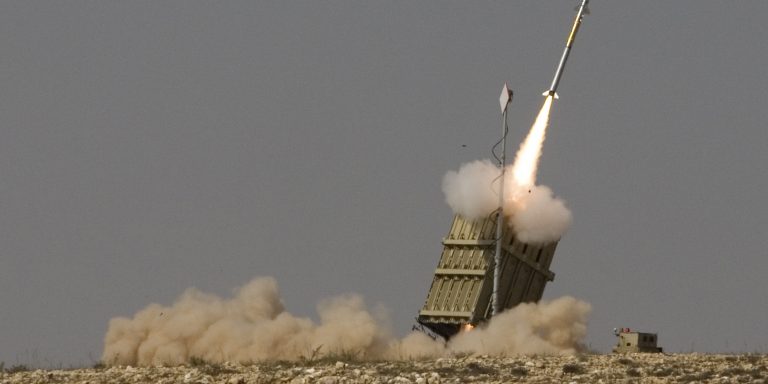INTELBRIEF
April 27, 2021
IntelBrief: Implications of Syrian Missile Firing into Israel

Bottom Line Up Front
- On April 22, a missile was fired from Syria into Israel, likely instigated by Iran as retaliation for Israel’s ongoing sabotage of its nuclear program.
- Israel has downplayed the incident to avoid pressure to escalate an already tense, undeclared conflict with Iran.
- The launch demonstrated the influence and autonomy Iran has established in Syria, Iran’s most significant Arab national partner.
- The Biden administration is wary that Iran-Israel conflict could derail a U.S. return to the 2015 multilateral Iran nuclear agreement.
On April 22, a missile fired from Syrian territory landed in southern Israel, about 20 miles from Israel’s main nuclear facility at Dimona; there were no reported casualties. Israel’s Defense Minister, Benny Gantz, asserted that the projectile was a surface-to-air missile fired by Syrian air defenses that missed hitting Israeli jets that were bombing a site near Damascus. However, experts questioned the Israeli explanation, given that the flight path of the missile exceeded the usual flights of an errant surface-to-air missile and coincided with escalating tensions with Iran. By denying that the missile was targeting Dimona deliberately, Israel’s leaders appeared to be seeking to defuse public pressure to escalate retaliation beyond the immediate response of bombing Syrian missile bases. In addition, they were likely also seeking to downplay the failure of Israel’s overlapping U.S.-designed and U.S.-funded missile and rocket defense systems to intercept the missile.
Even though the missile was fired from Syria, the launch was universally attributed to Iran by experts and international officials. It came just one week after an Israeli covert operation destroyed the power supply to Iran’s main uranium enrichment facility at Natanz. Iranian leaders had threatened retaliation for the Natanz attack; an Iranian editorialist close to Iranian Supreme Leader Ali Khamene’i had specifically called for Iran to strike Dimona as its response to the Natanz attack. In recent months, there have been numerous Israeli and Iranian attacks on each other’s interests, including commercial shipping, as part of an escalating “shadow war” between the two regional powers. Recent leaked audiotapes of Iranian Foreign Minister Javad Zarif show disconnect within Iran over Syria policy, among other issues. This further increases the chances of escalation with Israel, given Iran’s conflicting priorities and competing interests.
The interpretation of the missile firing as an intentional Iranian operation fits the analysis that Iran wields preponderant influence over the regime of Syrian President Bashar Al Assad. The Assad regime has sought to avoid provoking any Israeli involvement in its internal civil conflict since 2011, and there was no apparent rationale for any independent Syrian decision to fire a missile on southern Israel. For Iran, however, an outgrowth of its extensive support for Assad against the armed rebellion that began in 2011 has been an extensive buildup of military infrastructure, including missile production facilities, with which to place strategic pressure on Israel. Tehran might have determined that using its position in Syria to strike near the heart of Israel’s own nuclear program would deter further Israeli attacks on Iran’s nuclear program. If indeed the missile firing was an Iranian operation, the launch indicates that Iran has even more independent authority inside Syria than has been previously assessed by experts and governments.
More broadly, the missile firing indicates that there are no signs of restraint or de-escalation emerging in the undeclared conflict between Israel and Iran. Had the missile struck Dimona, Israel certainly would have been compelled to retaliate significantly, potentially with an air strike on Iran’s nuclear facilities. Even without an escalation to an all-out Israeli strike on Iran, the cycle of Israel-Iran attacks and retaliation could have significant strategic consequences in the region. As Israel’s closest ally, U.S. negotiators are wary that they will be blamed for involvement in or foreknowledge of any additional Israeli operations against Iran, and that Iran could leave negotiations in Vienna to restore the 2015 nuclear agreement. Such a collapse of diplomacy between the U.S. and Iran would undoubtedly produce a rift between the Biden administration and the government of Israeli Prime Minister Binyamin Netanyahu, who has never hesitated to denounce the 2015 Iran nuclear deal as fatally flawed and unwise. It is likely that Biden administration officials are appealing to their Israeli allies and Iranian adversaries to exercise restraint and de-escalate conflict before they are unable to draw back from a major war that potentially encompasses the entire region.